Earlier this month (5 September), journalists joined an event arranged by our partner, 100% Life, in Kyiv, Ukraine, for training on the intellectual property (IP) barriers that impede access to treatment.
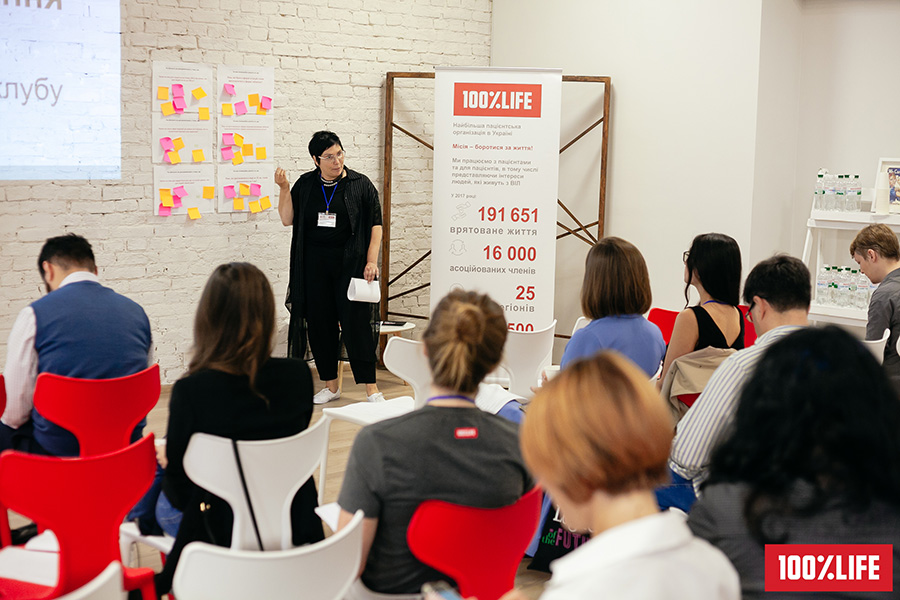
Journalists attended from a range of press: This included reporters from Ukraynska Pravda, the main online media in Ukrainian, as well as the Kyiv Post, the main English-language media in the country. Information agencies, UNIAN and Interfax, were in attendance; along with weekly national magazine Tyzhden; national TV, the ‘5 Channel’; the Russian-language online magazine, SPEKTR; and the investigative program Nashi Groshi.
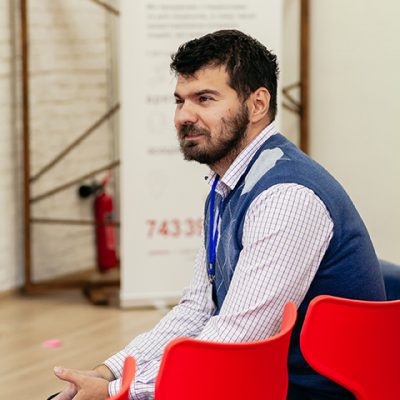 The intention is for the event to be the first of many, with regular training sessions held throughout the year. “Our goal is to create a circle of informed journalists who are knowledgeable on the subject and are motivated to initiate their own stories and investigations,” says Mykyta Trofymenko, Intellectual Property Counsel, at 100% LIFE, and one of the trainers at the event.
The intention is for the event to be the first of many, with regular training sessions held throughout the year. “Our goal is to create a circle of informed journalists who are knowledgeable on the subject and are motivated to initiate their own stories and investigations,” says Mykyta Trofymenko, Intellectual Property Counsel, at 100% LIFE, and one of the trainers at the event.
“We took the journalists on a deep-dive into the issues, sharing insights and practical examples, ensuring that the media representatives in attendance are equipped with the facts, including how abolishing monopolies on drugs, and extending generic access to the country, can save the lives of thousands of seriously ill patients and save millions in state funds.”
Single source
Once such example is the case of HIV drug, liponavir/ritonavir, marketed by AbbVie as Aluvia in Ukraine. 50% of Ukraine’s budget for HIV drugs is spent on ‘single-source’ medicines, with nearly 23% spent on Aluvia alone, due to what 100% Life have assessed to be an unmerited monopoly. An estimated 240,000 people are living with HIV in Ukraine. Until the patents for lopinavir/ritonavir are invalidated, other, more affordable, generic versions of the drug cannot enter the Ukrainian market and the additional 138,000 people that could benefit from reduced prices will have to continue to wait to start treatment.
The role of media is so important to our partner’s advocacy work. Each time 100% Life have protested outside court in Kyiv, there has been a significant media presence. The press helps increase our reach in keeping the public informed, and demonstrates to governments and pharmaceutical companies that there is huge public support.
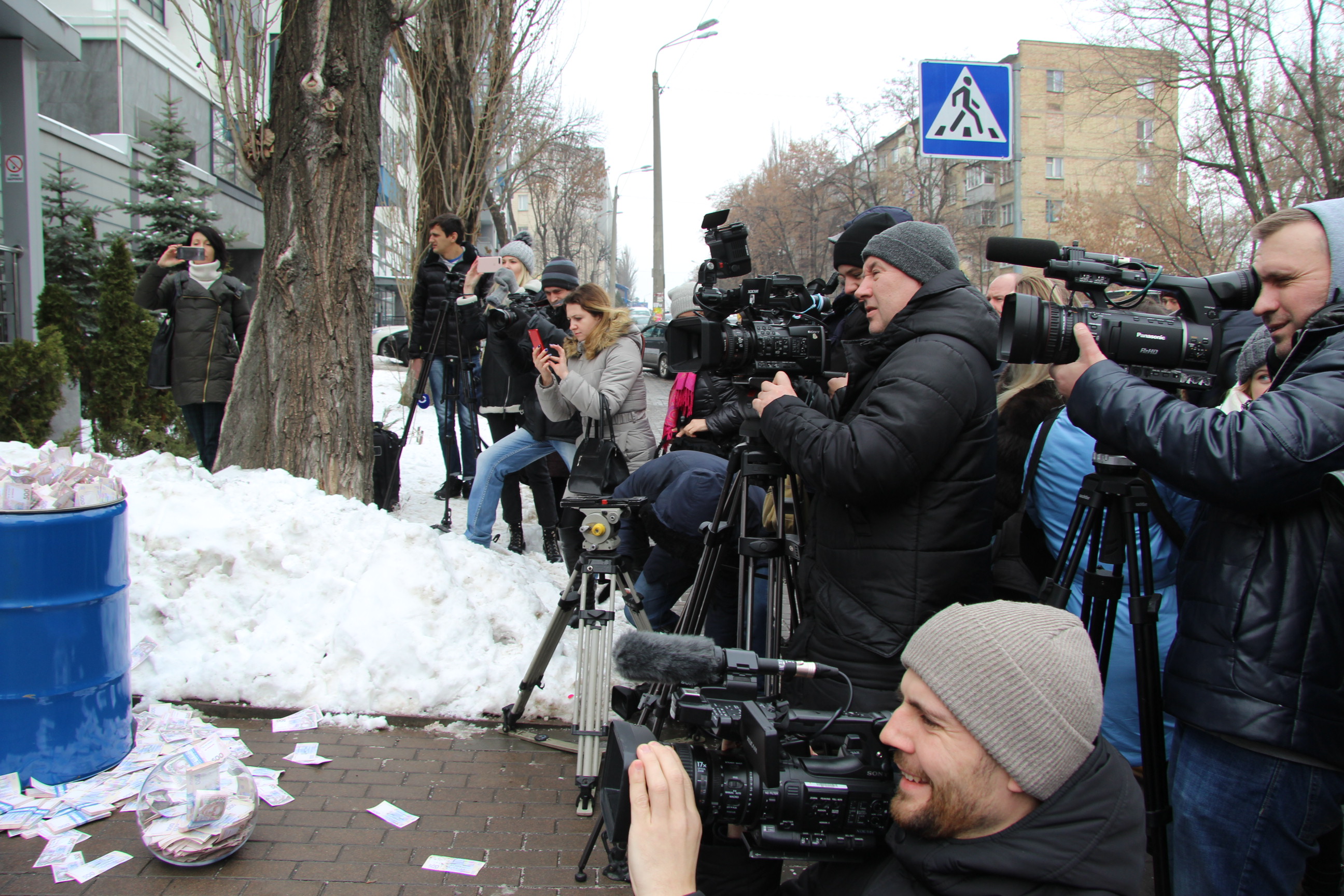
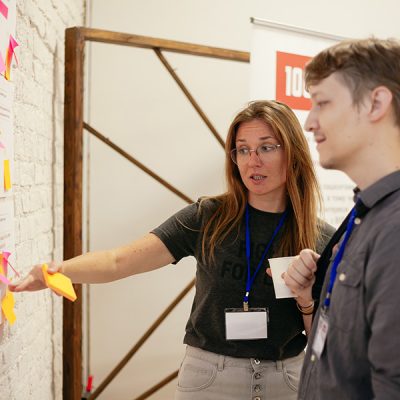 The Ukrainian press is already well engaged on the problem with patents, and has reported on the country’s patent law reform process, and examples evergreening. The media has been following the patent opposition on Merck’s MK-8591 application, which is significant for the Ukrainian press and public as 100% Life was the first civil organization globally to oppose this particular patent.
The Ukrainian press is already well engaged on the problem with patents, and has reported on the country’s patent law reform process, and examples evergreening. The media has been following the patent opposition on Merck’s MK-8591 application, which is significant for the Ukrainian press and public as 100% Life was the first civil organization globally to oppose this particular patent.
The training reinforced the knowledge of the journalists in attendance and provided an opportunity for the context and complex concepts to be explored further and questions to be answered in-depth.
“The training was very useful and provided evidence from a medical point of view,” says Nataliia Bushkovska, journalist at Ukraynska Pravda. “It was extremely important to clarify the situation [on generics] and it was an opportunity to consult on some on the legal points [redacted].”
‘To do’ list
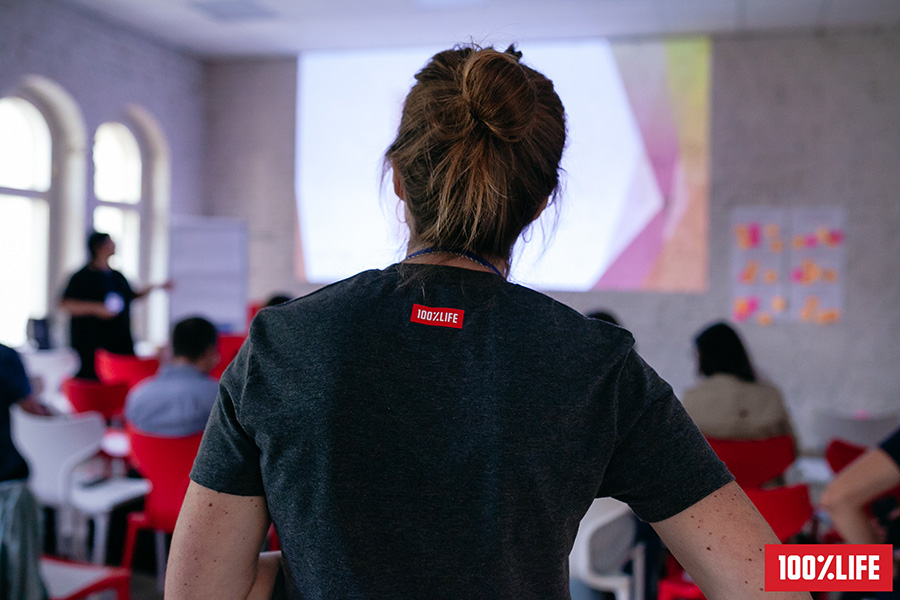
“With Ukrainian politics currently in a transition period due to the recent elections and the new Government still in the process of formation, it was important to draw journalists’ attention to patent reform and the critical ‘to-do list’ in this sphere,” says Trofymenko.
This includes implementation of Bolar exception and patent opposition procedures; improvement of compulsory license mechanisms; legalization of the parallel import of pharmaceutical products; increasing patent examination expertise; and strengthening patenting criteria so unmerited patents are not granted.
Having the media and general public aware of the issues affecting access to health is especially critical during a period of political change to ensure that the issue stays on the agenda, and public health is prioritised over profit.
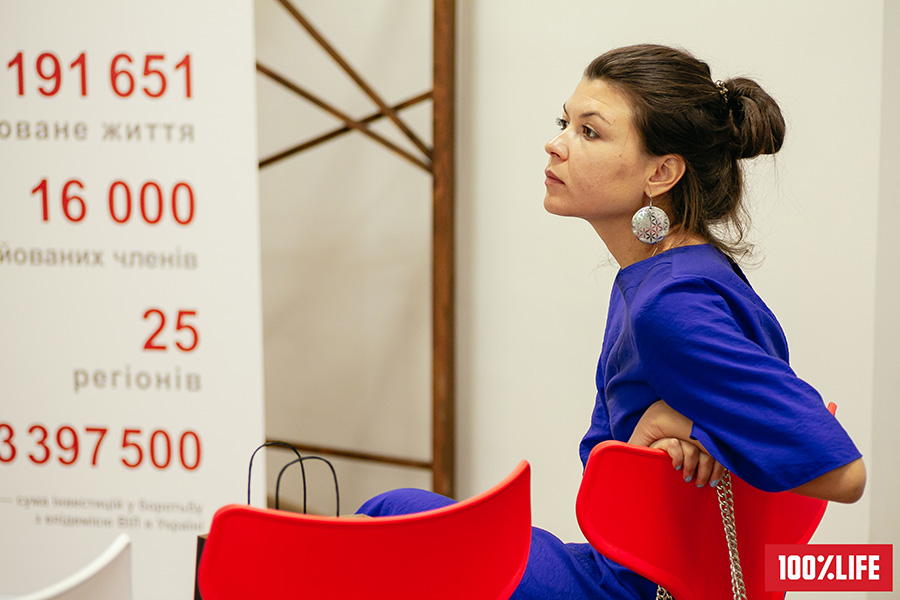
Thank you to all of the journalists for attending, and the following experts who presented at the event:
- Oksana Kashyntseva – Head of the Center for Harmonization of Human Rights, Institute of IP of the National Academy of Law Sciences of Ukraine, and Head of the Scientific Research Laboratory for Bioethics rights and Medical Law.
- Mykyta Trofymenko – Intellectual Property Counsel, 100% LIFE.
- Sergey Kondratyuk – Make Medicines Affordable’s campaign manager, ITPC.
- Ivan Zelenskiy – Director, Drop of Blood.
- Petro Borovyk – Patent Attorney, Patent Agency ‘Borovyk and Partners’.




